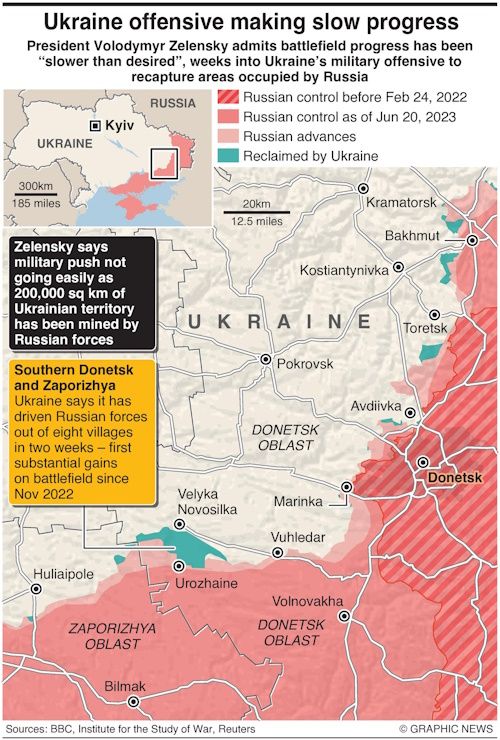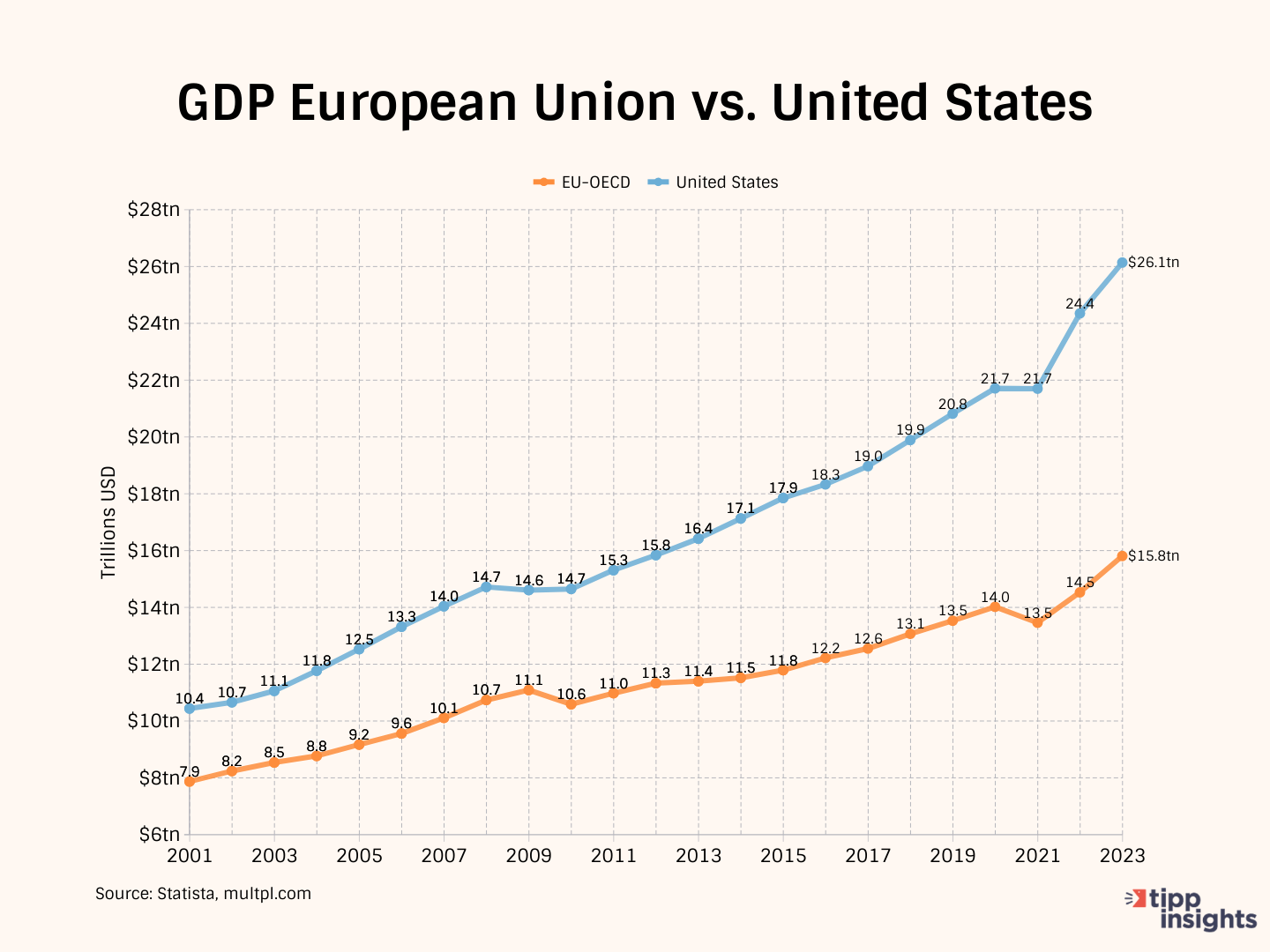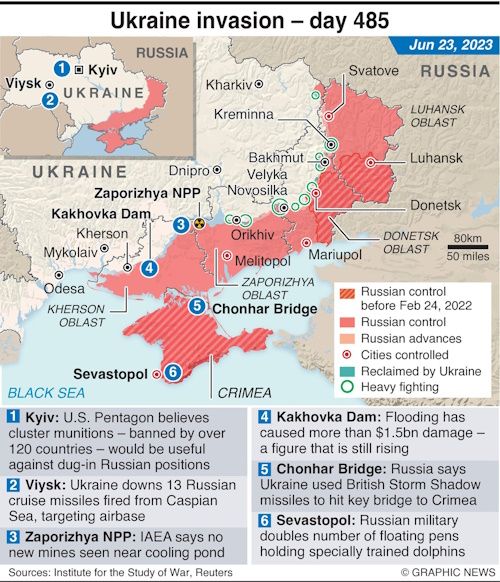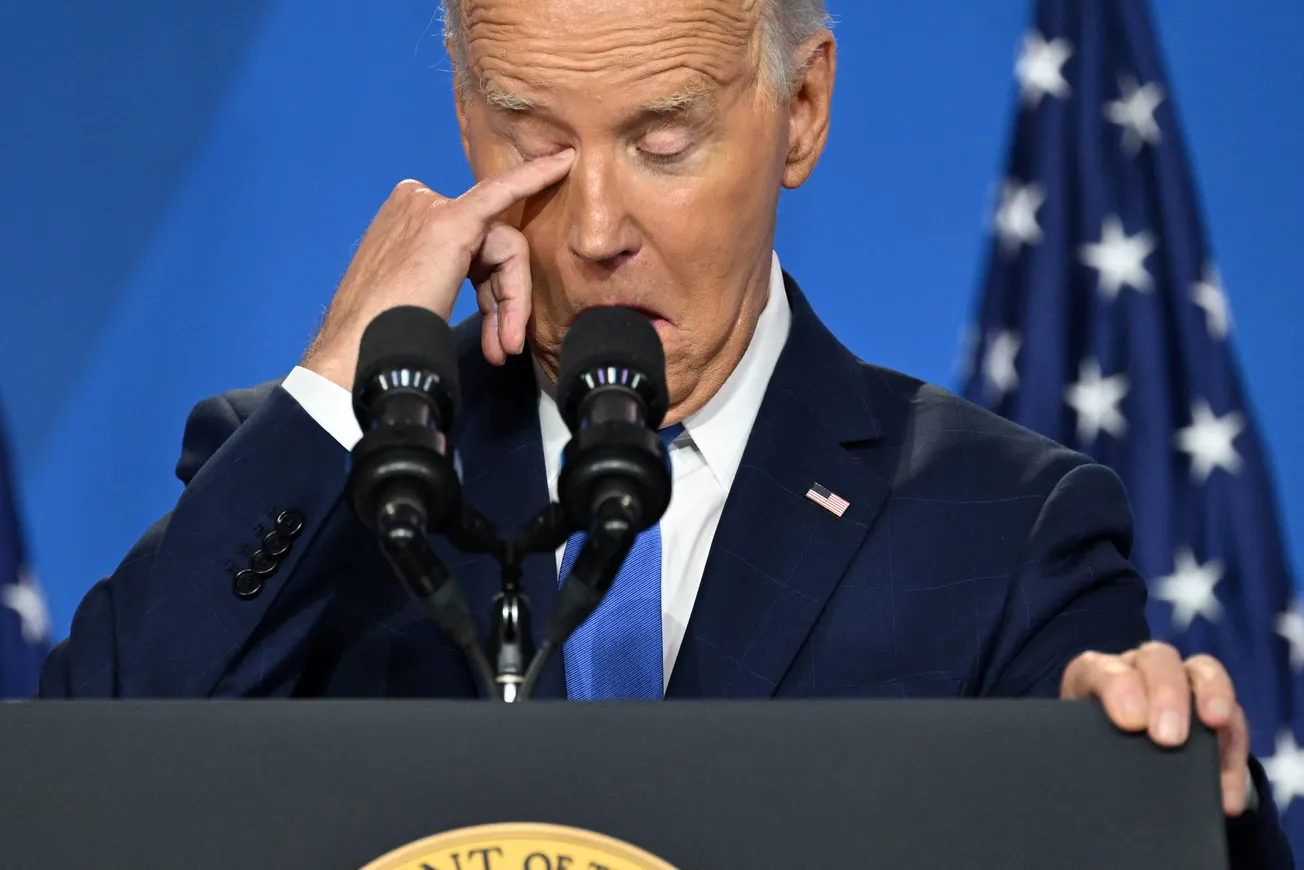Before the EU committed head over heels to support Ukraine in fighting a needless war on vague principles of protecting the international world order, Brussels should have thought about the war's aftermath. Can the EU really afford an eventual reconstruction bill?
As EU leaders converge in London at a conference to grapple with how to help, the war grinds on with no end in sight. The famed Ukrainian counter-offensive, about which much has been written in Western media, is progressing slowly. "Some people believe this is a Hollywood movie and expect results now. It's not," President Zelenskyy told the BBC this week.

Even if the war were to end today, the reconstruction costs would be enormous. The World Bank estimates this to be $411 billion (in October 2022, a similar estimate was $350 billion - so, the reconstruction costs are climbing at about $8 billion a month). From where will the EU fund the effort?
Politico Europe reported that on the eve of the London summit, the European Commission unveiled the "Ukraine Facility" to provide up to $55 billion in financial support for Ukraine from 2024 to 2027, with two-thirds coming from loans and a third in grants. If you are confused that the numbers don't add up - how can an $18 billion subsidy for what is dubbed a Marshall Plan even hope to close in on a reconstruction tab of $411 billion and rising - you are not alone. No one knows how to deal with this gorilla.
The truth is that the EU, including the UK, is in one of the worst financial straits since World War II. Germany, Europe's wealthiest economy, is already in a recession. Spain and Italy are posting anemic GDP growth rates of 0.5%. The Bank of England announced interest rates to rise to 5% in the 13th straight increase, cautioning that more hikes may occur.
The UK, even before Brexit, is a country more comfortable with pomp and pageantry aligned with its colonial past than being an economic powerhouse. We noted two months ago that of the top ten global software companies that produce tools for individuals and businesses, not one is British. In the engineering and technology world, the UK is a waning power.
The EU is a textbook example of what happens when bureaucracy rules over the fundamental tenets of a liberal democracy rooted in capitalism. Even today, each EU member nation has its own form of government, lower and upper houses of parliament, chief executive, capital, flag, language, and fiscal tax and expenditure policy.
But all EU nations have a single common currency, the Euro, backed by a single central bank. A common monetary policy means that interest rates for all member nations would be decided in Brussels, as would be other central bank responsibilities such as the money supply.
The EU has a complex system of rules that have lifted barriers to trade among member states - the retirement of customs duties, excise, and other taxes, for example - resulting in the complete elimination of borders. Each EU country enjoys instantaneous access to markets, capital, and labor across 27 other nations.
But what holds the fragile union together is a set of unbending rules in Brussels developed over six decades and perfected into an art form by millions of bureaucrats. These officials are faceless and not elected by the people of the member states. But they have enormous powers to make sovereign member nations comply through communiques and diktats, even more power than the chief executives of those states.
Liberals who salivate over a deep regulatory state made extraordinary predictions about how the EU experiment would succeed. Anu Bradford, a Columbia law school professor, said in 2012 that the EU is an influential superpower that shapes the world in its image by promulgating regulations that shape the international business environment and elevating standards worldwide.
Bradford's romantic view of the EU has not aged well. Jeremy Shapiro and Jana Puglierin of the European Council on Foreign Relations said in a policy paper in April: "In 2008 the EU's economy was somewhat larger than America's: $16.2tn versus $14.7tn. By 2022, the US economy had grown to $25tn, whereas the EU and the UK together had only reached $19.8tn. America's economy is now nearly one-third bigger. It is more than 50 percent larger than the EU without the UK." Conclusion: The EU has been an economically failing group of nation-states for nearly 15 years now.

The EU is too rules-driven and has too many domestic problems of its own (labor strife, pension reform, immigration, lack of capital markets, lack of innovative products) for it to power Ukraine's reconstruction. Rather than mindlessly embracing President Biden by dutifully following his lead in the Ukraine-Russia war, committing weapons, moral support, and breaking energy ties with Russia, Brussels should have listened to Hungarian leader Victor Orban, who has consistently maintained that the EU cannot afford not just this war but all wars.
As EU leaders in London strain to put on a unified public face to show they stand with Ukraine, they must be privately conceding that they probably went too far in attempting to punish Russia, and the war has hurt the EU more than it has the aggressor. The conflict has impoverished the EU so much that it has to rely on the United States to help meet conference objectives. Again.
Related Infographics

Like our insights? Show your support by becoming a paid subscriber!
We welcome readers' letters via email. Please email editor-tippinsights@technometrica.com.









